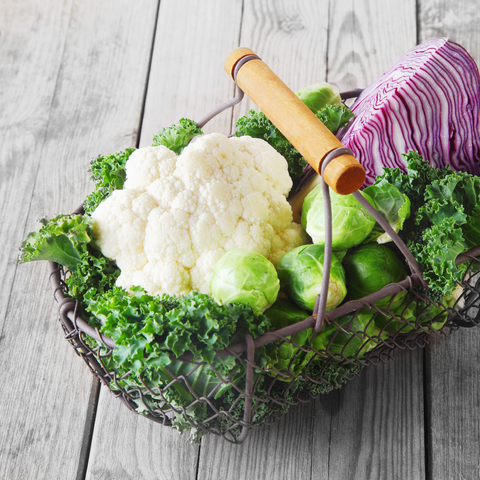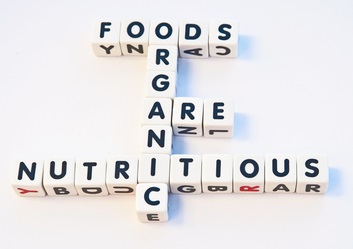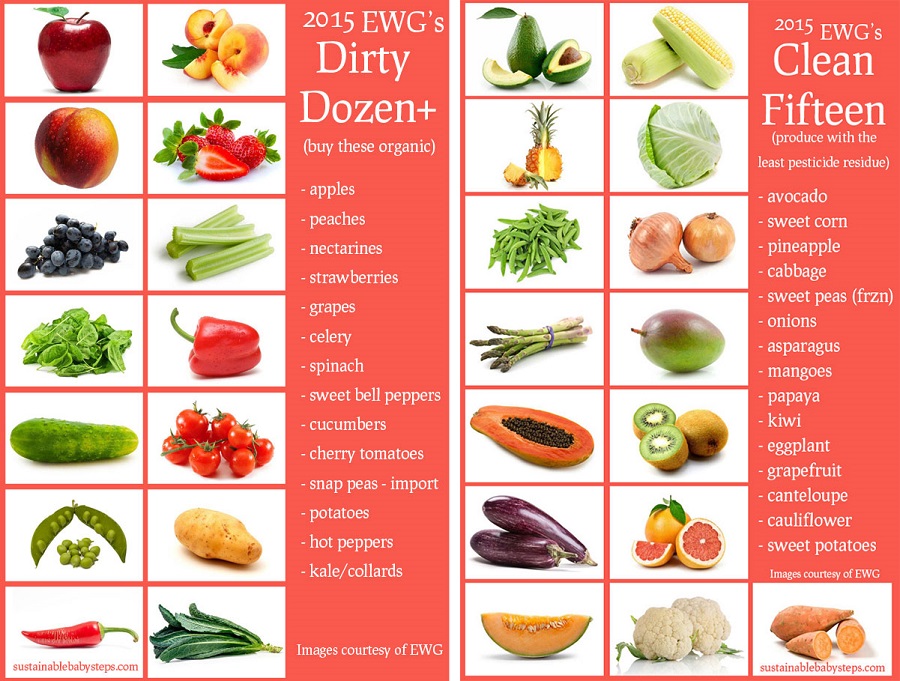The Poison Apple Education Project™ was started in response to the growing concern that a developing child’s exposure to Pesticides/herbicides in the womb, might be causing some of the neurological disorders we are experiencing a rise of in our children. Current autism rates are 1 in 68 children.
We decided to pass along this new concern in the form of a nutritional brochure for new mothers (please see brochure tab to print your own). Registered dietician Christi Salem M.S, R.D, provided the nutritional information. Below is a more detailed version of the information she provided.
 Why go organic
Why go organic
When it comes to eating organic- there seems to be a lot of confusion. While some say it’s important, others say there is not much difference between eating conventional grown foods and organic foods. The truth is, that eating organic is always a better option, especially for pregnant woman and children. Studies have shown that a significant amount of exposure to chemicals and pesticides is a concern for all individuals, especially infants, children and expectant mothers. Not only are chemicals and pesticides a concern for our health, but organic produce has been shown to be higher in nutrients than non-organic produce.
Our Exposure begins in the womb

For a pregnant woman, an organic diet is even more important because all those toxins cross the placental barrier and get to the baby. Toxins can
also concentrate in the breast milk of lactating women as well. When the fetus is exposed to certain chemicals during key windows of development, the normal process of development can be disrupted. Studies have shown that if the timing is “right”, these exposures during the fetal development could lead to birth defects, learning disabilities, cancer, lower IQ and much more. The fetus, infants and children are the most vulnerable to chemicals as their bodies are constantly developing.
The timing of chemical exposure is important. Some Studies have shown that during the first trimester of pregnancy, the nervous system of the baby is rapidly developing, so the greatest risk of exposure to pesticides is during the first 3 to 8 weeks when neural tube development is occurring. While other studies have indicated that the 2nd and 3rd trimester are just as crucial. Since more studies need to be done on this area, it is recommended to consume organic foods as much as possible throughout the entire pregnancy.
Can washing produce help decrease pesticide levels?
While we have always been told to wash our fruits and vegetables; recent studies have shown that it is not possible to wash the pesticide off the fruit or vegetable. It has actually been shown that the pesticides can get into the interior core of the plant. Just as the plants soak up the minerals from the ground and incorporate them into the fruit or vegetable, they can also soak up the pesticides and herbicides from the ground and incorporate it into the plant as well. These harmful chemicals can change the very structure of the plant. So, not only are you consuming the toxins, but the plant itself can have less nutrients then an organically grown one. Thus, it is recommended that you purchase organic fruits and vegetables as much as possible throughout pregnancy and early childhood.
Organic Agriculture |
Conventional Agriculture |
| • Applies natural fertilizers, such as manure or compost | • Applies chemical fertilizers to promote plant growth |
| • Rotates crops, tills, hand weeds or mulches to manage weeds | • Sprays insecticides to reduce pests and disease |
| • Gives animals organic feed and allows them access to the outdoors | • Uses chemical herbicides to manage weeds |
| • Uses preventive measures, such as rotational grazing, a balanced diet and clean housing to help minimize disease | • Gives animals antibiotics, growth hormones and medications to prevent disease and spur growth |
Easy Ways to incorporate organic foods into your life
• Go to farmers markets
• Grow a Garden
• Tower gardens are a great way to grow your own produce with limited space.
• Find a company that delivers organic fruits and vegetables to your doorstep.
• Look for the organic seal when shopping in the market

Folate: Folate is a B vitamin that helps prevent neural tube defects, serious abnormalities of the brain, and spinal cord. Aim for foods high in folate such as:
– Asparagus – beans – black eyed peas – broccoli – fortified cereals – leafy greens such as spinach – citrus fruits such as oranges – peanuts
Protein: Pregnant woman need an additional 10 grams of protein a day for a total of at least 60 grams. Aim for lean sources such as:
– Beans – Chicken breast – Eggs, Fish – Lentils – Nut Butters – Turkey breast
Omega 3-Fatty Acids/DHA: Omega 3-fatty acids are important for the babies development and can help boost your mood through pregnancy. DHA is important for brain development and vision. Aim for foods high in Omega-3 fatty acids including:
– Chia Seeds – Flax seeds -fortified egg – Hemp Seed – Tuna – Wild Salmon
*The FDA recommends no more than 12 oz. of fish a week to avoid ingesting too much mercury
Calcium: Calcium is an important nutrient during pregnancy. It helps strengthen the bones and teeth of mother and baby. It is also important for the mothers circulatory, muscular and nervous system. Good sources include:
– Broccoli – cheese – Kale – Milk – Salmon – Spinach – Yogurt
Iron: During pregnancy, your blood volume expands, doubling your need for iron. Good sources include:
– Cereal – Beans – Meat – Poultry – Spinach
Potassium: Potassium is important during pregnancy. It helps regulate your blood pressure and helps maintain proper fluid balance. Good sources include:
– Banana – Broccoli – Cantaloupe – Orange juice – Lentils – Spinach – Sweet Potato – White Beans – Winter squash
Iodine: Iodine helps with brain and nervous system development in your baby. It is important for preventing stunted growth, severe mental disability, and deafness. Has been also shown to help prevent miscarriage and still birth. Good sources include:
– Baked potato with peel – Cod – Cottage Cheese – Cow’s Milk – Navy beans – Yogurt
Vitamin D: Vitamin D is important to help your baby’s body to use calcium to build bones and teeth. Good sources include:
– Eggs – Fortified Cereal – Fortified Juice – Milk
Choline: is important for neurological development.
– Eggs
Summary
Consuming a healthy diet through pregnancy is essential for both mother and baby. Not only does a healthy diet influence the baby’s development and can prevent complications for the mother throughout the pregnancy, but it has also been shown that what a mother eats while pregnant can influence what the baby eats later in life. Aim for foods high in healthy fats such as avocado, nuts, seeds, flax seed, chia seed and nut butters. These unsaturated fats play an important role in the development of the brain, eyes and nervous system. In addition to healthy fats, aim for at least 7 servings of organic fruits and vegetables a day. Fruits and vegetables are loaded with vitamins, minerals, antioxidants and phytochemicals that are essential for both mother and baby. These nutrients are imperative for the development of cells, tissues, and immune system development. Receiving proper amount of the antioxidant Beta carotene will help the newborn baby fight off viruses and bacteria in his or her environment. Aim for foods such as carrots, pumpkin, sweet potatoes, spinach, kale, oranges and cabbage. Consuming adequate amounts of folic acid is important for the prevention of neural tube defects. Foods such as romaine lettuce, spinach, asparagus and broccoli are naturally high in folic acid. Potassium is also very important during pregnancy. It has been shown to help balance fluid levels, regulate blood pressure, and helps muscles perform well. Good sources include potatoes, beets, carrots, lima beans, peas and spinach. Eating well can ensure that your baby grows and develops properly and that you experience fewer complications from pregnancy.
